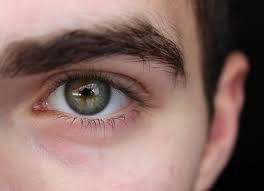Definition
Macular degeneration is a condition characterized by the loss of central vision, where individuals struggle to see fine details in images or text, either up close or from a distance. Common symptoms include difficulty reading or recognizing faces, the inability to see the hands on a clock while being able to view the numbers around it. This condition primarily affects those over the age of 60 and is often irreversible. The degeneration occurs due to fluid or blood seeping into the macula, which is the center responsible for sharp, central vision.
There are two types of macular degeneration:
- Dry macular degeneration. Individuals with dry macular degeneration develop yellowish deposits called drusen on their macula. A small number of drusen typically do not affect vision, but as they accumulate, they begin to impair it. Early signs include distorted vision, especially noticeable when reading. As the condition worsens, the light-sensitive cells in the macula may die, resulting in a blind spot or loss of central vision.
- Wet macular degeneration. In this form, abnormal blood vessels grow under the macula, which can rupture and leak fluid or blood into the retina. This leakage disrupts the functioning of the eye's layers, leading to vision distortion, often first noticed as straight lines appearing wavy. Over time, these fragile blood vessels form scar tissue, causing permanent damage to central vision.
Although less common than the dry form, wet macular degeneration can develop from it.
Causes
The exact cause of macular degeneration is unknown, though studies suggest that a combination of environmental factors—such as smoking and diet—and genetic predisposition may play a role. The condition tends to emerge with age.
Risk Factors
Several factors increase the likelihood of developing macular degeneration, including:
- Age: Primarily affects individuals over 60.
- Family History and Genetics: The condition has a hereditary component.
- Race: More common among Caucasians.
- Smoking: Significantly raises the risk.
- Obesity: Research shows a higher risk of both developing early macular degeneration and experiencing its more severe progression.
- Cardiovascular Disease: A history of heart disease may heighten the risk of macular degeneration.
Symptoms
- Visual distortion, where straight lines appear wavy.
- Loss of central vision.
- Difficulty reading, especially in low-light conditions.
- Trouble distinguishing printed text.
- Reduced brightness and intensity of colors.
- Problems recognizing faces.
- Dark spots or blind spots in the central field of vision.
- Peripheral vision remains unaffected.
Dry macular degeneration may affect one or both eyes. When only one eye is involved, symptoms may be less noticeable, as the healthy eye compensates for the affected one.
Diagnosis
A routine eye exam can detect macular degeneration. Your doctor may use a slit lamp or perform a fundoscopy to check for the presence of drusen in the eye lining. Another common test involves the use of an Amsler grid, a grid of straight lines that can appear wavy or distorted if macular degeneration is present. If abnormalities are detected, additional tests such as an angiogram or optical coherence tomography (OCT) may be required. These imaging tests help identify new or damaged blood vessels in the macula and detect any fluid buildup under the eye lining. Early detection is essential to manage the condition and prevent further deterioration.
Management
Macular degeneration is a permanent condition with no known cure, but treatment can slow its progression. Some treatment options include:
- Anti-angiogenesis drugs: Medications that inhibit the growth of abnormal blood vessels in the eye.
- Laser therapy: High-intensity lasers can stop blood vessel growth in the eye.
- Photodynamic laser therapy: A treatment in which a drug is injected and absorbed by the eye lining, followed by laser treatment to manage the disease.
- Submacular surgery: A surgical procedure to remove abnormal blood vessels.
- Retinal translocation: A surgery aimed at damaging problematic blood vessels beneath the macula.
Complications
Macular degeneration can lead to psychological complications such as depression and social isolation. Some people may also experience visual hallucinations, a condition known as Charles Bonnet Syndrome, due to problems with central vision.
Prevention
Early identification through routine eye exams is critical in managing macular degeneration. Several steps can help reduce the risk of developing this condition:
- Manage other health conditions: Control cardiovascular diseases like high blood pressure, which is a risk factor for macular degeneration. Take medications as prescribed by your doctor.
- Quit smoking: Smoking is a significant risk factor. Seek your doctor’s guidance on how to quit.
- Improve lifestyle and exercise: Regular physical activity and a balanced diet can reduce risk factors. If necessary, decrease calorie intake to achieve a healthy weight.
- Eat fruits and vegetables: A diet rich in fruits and vegetables can help reduce the risk.
- Consumption of fish. Fish have omega-3 fatty acids that can reduce the risk of macular degeneration. Foods that you can consume other than fish are nuts.
- Take vitamins and supplements: Vitamins such as C, E, and zinc may lower the risk. Consult your doctor for advice on the appropriate supplements.
When to See a Doctor?
If you experience changes in your central vision or find it difficult to see colors, consult your doctor immediately. These changes may indicate the early stages of macular degeneration, particularly in individuals over the age of 60.
Looking for more information about other diseases? Click here!
- dr Hanifa Rahma
Boyd K. (2021). What Is Macular Degeneration? Retrieved 07 November 2021, from https://www.aao.org/eye-health/diseases/amd-macular-degeneration.
Mayo Clinic. (2021). Dry macular degeneration. Retrieved 07 November 2021, from https://www.mayoclinic.org/diseases-conditions/dry-macular-degeneration/symptoms-causes/syc-20350375.
Mayo Clinic. (2021). Wet macular degeneration. Retrieved 07 November 2021, from https://www.mayoclinic.org/diseases-conditions/wet-macular-degeneration/symptoms-causes/syc-20351107.
Kozarsky A. (2019). Age-related macular degeneration. WebMD. Retreived 07 November 2021, from https://www.webmd.com/eye-health/macular-degeneration/age-related-macular-degeneration-overview.











